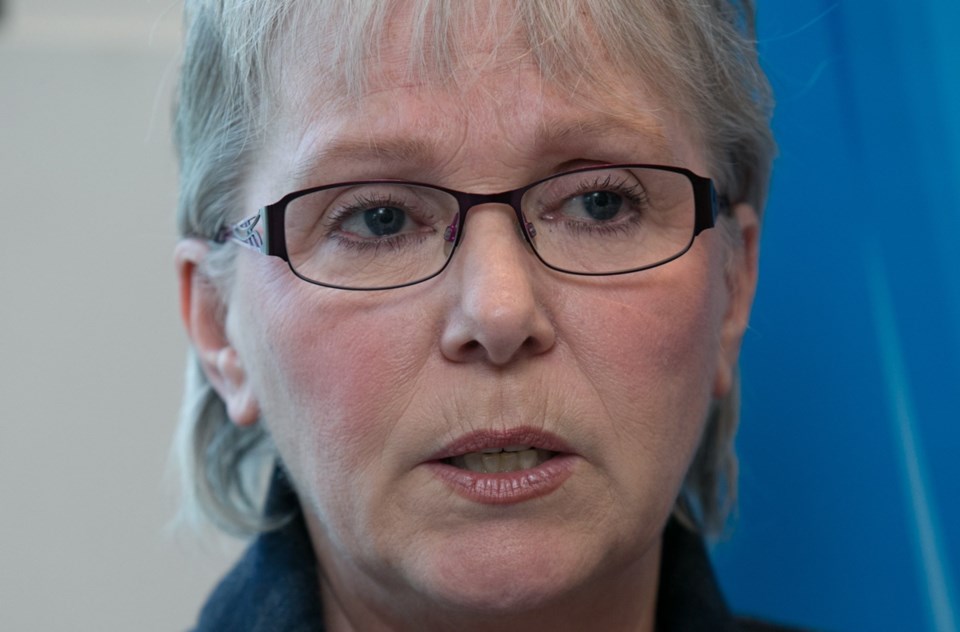The B.C. government came under fire in the legislature on Wednesday for “clawing back” child-support payments from single mothers living on income or disability assistance.
NDP critic Michelle Mungall slammed the government for scooping more than $17 million last year in family maintenance payments from people on assistance.
“How is this putting families first?” she said, referencing Premier Christy Clark’s old campaign slogan.
Mungall and Esquimalt-Royal Roads MLA Maurine Karagianis introduced six single mothers watching from the public gallery and cited their cases as evidence of the government’s callous approach.
“If they could keep their child-support payments, the struggle of feeding and clothing their kids would be reduced,” Mungall said. “That would reduce child poverty in their homes.”
A single mother with one child receives $945 a month in income assistance or $1,332 in disability assistance.
But if they receive any additional child-support money from ex-partners, the government reduces their assistance cheques by an equal amount.
“They take every penny,” said Michelle Tallio, a First Nations woman from Victoria with a heart problem and a nine-year-old. She said most of her government assistance goes toward rent, leaving little left over for food and other necessities.
“One of the things with my daughter is, after school she would cry all the way home because she’s so starved,” she said. “You can buy fresh produce for the first week and the rest of the month you’re having to try to find ways to get money and food.”
Tallio said being able to keep the child-support payments would allow her to give her daughter proper nutrition and hire a tutor.
“It would be really nice, when I go get her after school, to have a healthy snack so she’s not crying all the way home because she’s so hungry,” Tallio said.
The B.C. Ministry of Social Development states on its website that it keeps the child-support payments to ensure that “people are accessing all other forms of income before relying on taxpayer-funded income assistance.”
The ministry said it helps people on assistance to secure family-maintenance orders and register them free of charge. “The orders remain in force even after families are no longer receiving assistance,” the ministry said.
But Jennifer Brice, also of Victoria, said she and her two-year-old son struggle to get by on her disability assistance and could use the child-support payments to pay for basic necessities.
“My first year of income assistance I lost 40 pounds,” she said. “None of that was weight I gained in pregnancy, that was strictly because of the low rate of income assistance, paying high rent costs and not having enough money left to have food.”
Clark did not directly answer questions on the issue in the legislature. Instead, she said the government is working to help children and families by improving the economy “as a way to make sure that we look after people in the province for the long term.”
She said her government has strengthened the social safety net by increasing the minimum wage, keeping taxes low, eliminating medical service plan premiums for people in low-income brackets and investing in social housing.
“We believe that the best way out of poverty is to make sure that people are participating in the economic growth and that they have the skills that they need to take those jobs,” Clark said. “In the meantime, we also have to make sure that that social safety net is there to protect people who need that protection when they are enduring poverty in our province.”



